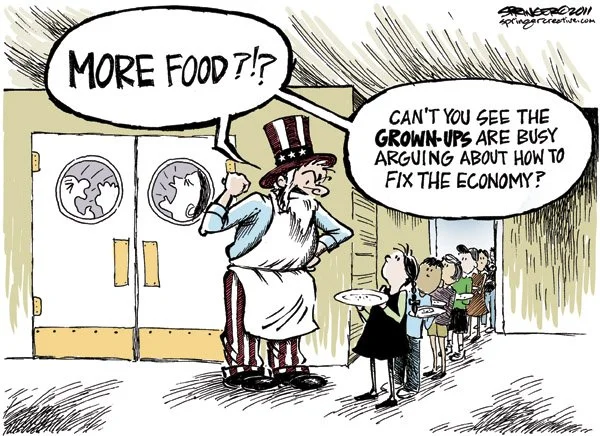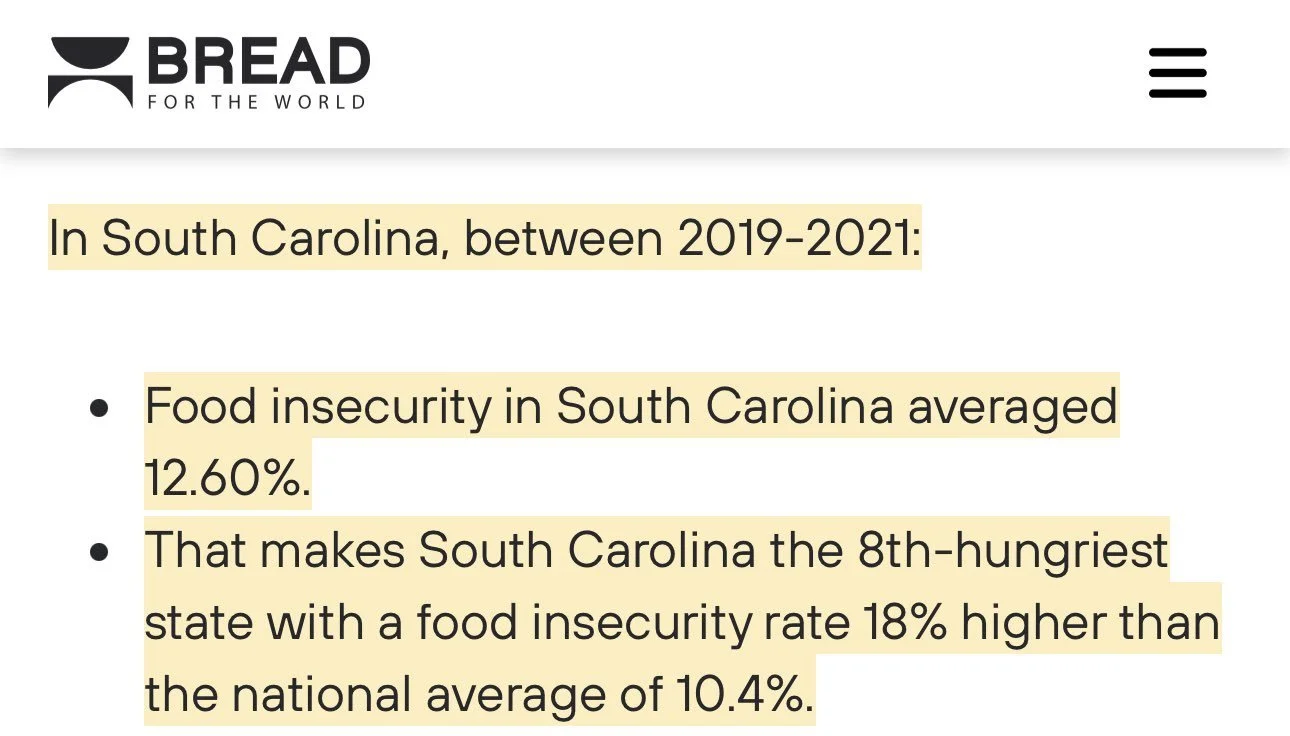S.C. Sending Federal Dollars Elsewhere Leaving Children Hungry
Paul Hyde/South Carolina Daily Gazette
The state’s recent decision to deny federal food assistance to children is not only bad news for kids from low-income families. It’s a rotten deal for South Carolina taxpayers.
We’re cheating ourselves.
Gov. Henry McMaster recently decided not to participate in a federal program that provides food assistance to needy families during the summer. The program could have helped feed at least 72,000 South Carolina children, according to reporting by the S.C. Daily Gazette’s Jessica Holdman.
Under the U.S. Department of Agriculture program, low-income families could receive up to $120 a month — $40 per eligible school-aged child — added to their benefit cards to buy groceries.
South Carolina was one of only 15 states that chose not to participate.
Stepping aside for the moment from the Dickensian nightmare of hungry South Carolina children, it’s important to point out that the program could have brought millions of our own tax dollars back to our state.
Make no mistake about it: This is our own money we’re turning away.
Our federal tax dollars pay for this federal program. We will shoulder our fair share of the burden, but we’ll not receive any of the benefit.
Instead, we’re sending our tax dollars to other states that do participate.
As many as 21 million children in other states could benefit from the initiative.
Gov. McMaster, however, said he’s concerned about the increasing size of the federal government.
“This is how the government gets bigger and bigger: bigger bureaucracies, bigger entitlements,” McMaster said on Jan. 30.
The summer food program was a COVID-era program and needs to be discontinued, McMaster said.
But Congress made it permanent in December 2022.
No doubt many people share McMaster’s concern about bloated government, but denying food to children is not going to inspire Congress to reduce the size of the federal government.
McMaster pointed out the state does have existing food benefits for poor families and nonprofit food banks across the state. But Sue Berkowitz, with the Appleseed Legal Justice Center, which advocates for low-income families, said current programs do not come close to addressing the needs in South Carolina.
Refusing money
Sadly, rejecting federal dollars (our own money) for struggling South Carolinians is nothing new.
South Carolina remains one of only 10 states in the nation that still refuse to expand Medicaid, which could provide health care coverage for an additional 350,000 low-income South Carolinians.
The state turned away $11.2 billion of our own tax dollars between 2014 and 2020 due to state lawmakers’ refusal to expand Medicaid.
That’s cutting off our nose to spite our face.
Our federal tax dollars are being used to pay for Medicaid expansion in other states “while none of the Medicaid expansion funds are coming back” to South Carolina, according to health policy expert Louise Norris, writing in healthinsurance.org.
Norris said that between 2013 and 2022, $152 billion in federal taxes has been collected from residents in states not expanding Medicaid (such as South Carolina) to be used to fund Medicaid expansion in other states.
No surprise, seven of the 10 states that refuse to expand Medicaid are also turning away their own tax dollars for the summer food program.
These are some of the poorest states in the nation — South Carolina, Alabama, Mississippi, Georgia, Florida, Texas and Wyoming. They all could use those federal dollars to bolster their economies.
It’s likely that poor states like South Carolina could receive more federal funds from the food program than SC taxpayers contribute to it.
A pro-life challenge
South Carolina teachers, who have a long memory, are still angry that in August 2011 then-state Education Superintendent Mick Zais turned away $144 million in federal money to help keep teachers employed in South Carolina in the wake of the Great Recession. South Carolina was the only state in the nation to reject the money.
Zais earlier that year had refused to apply for a $10 million to $50 million grant from a $200 million federal program set up for South Carolina and eight other states.
All of these incidents — where federal funds were refused — share a common denominator: the beneficiaries would have been some of our most vulnerable South Carolinians, who have little or no political power.
If they change their mind, South Carolina’s leaders can apply for the summer food program in 2025.
Experts have suggested the child poverty rate may increase in states, such as South Carolina, that ban or limit abortion. There may be an even greater need in the future for the summer food program.
That offers a moral challenge to South Carolinians who call themselves “pro-life.” What could be more pro-life than food?
The South Carolina Daily Gazette is a nonprofit news site providing nonpartisan reporting and thoughtful commentary. We strive to shine a light on state government and how political decisions affect people across the Palmetto State. We do that with coverage that’s free to both readers and other news outlets.


